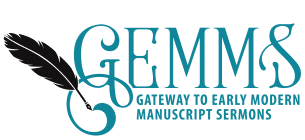S. T. Bindoff, 'Clement Armstrong and His Treatises of the Commonweal', The Economic History Review, 14.1 (1944), pp.64-73; Ethan H. Shagan, 'Clement Armstrong and the godly commonwealth: radical religion in early Tudor England', in Peter Marshall and Alec Ryrie, eds, The Beginnings of English Protestantism (Cambridge: Cambridge University Press, 2002), pp. 60-83; A. L. Beier, Social Thought in England, 1480-1730: From Body Social to Worldly Wealth (Abingdon and New York, NY: Routledge, 2016); Hannah Yip.
S. T. Bindoff, 'Clement Armstrong and His Treatises of the Commonweal', The Economic History Review, 14.1 (1944), pp.64-73; Ethan H. Shagan, 'Clement Armstrong and the godly commonwealth: radical religion in early Tudor England', in Peter Marshall and Alec Ryrie, eds, The Beginnings of English Protestantism (Cambridge: Cambridge University Press, 2002), pp. 60-83; A. L. Beier, Social Thought in England, 1480-1730: From Body Social to Worldly Wealth (Abingdon and New York, NY: Routledge, 2016).
Clement Armstrong (c. 1477-1536) was an English radical reformer. He was a London grocer, purveyor of building and decorative materials, and occasional attendant in the royal court of Henry VIII. He sought Cromwell's patronage, but there is no evidence that he received it. Armstrong is best known for his two economic treatises in manuscript, but he also wrote religious tracts in defence of the establishment of the Church of England, exhibiting 'influences from both continental and homegrown Lollardy' (see Beier, p. 80). Indeed, Ethan H. Shagan states that this series of tracts, written no later than 1533, may be the 'most comprehensive and radical justifications for the royal supremacy over the Church ever written in England' (Shagan, p. 61). Some of these tracts can be found in TNA SP 6/2 and TNA SP 6/11. Before his death, Armstrong advocated the redistribution of all property.
